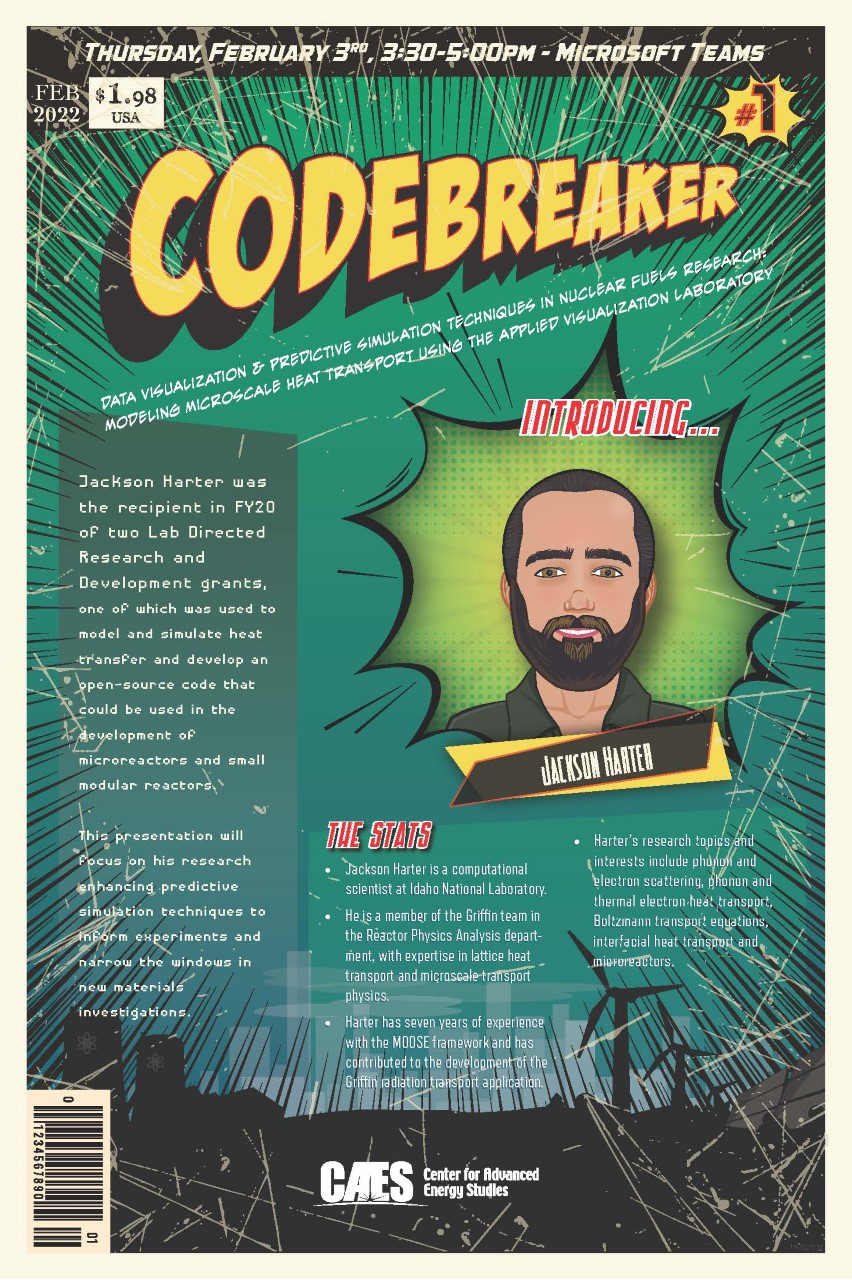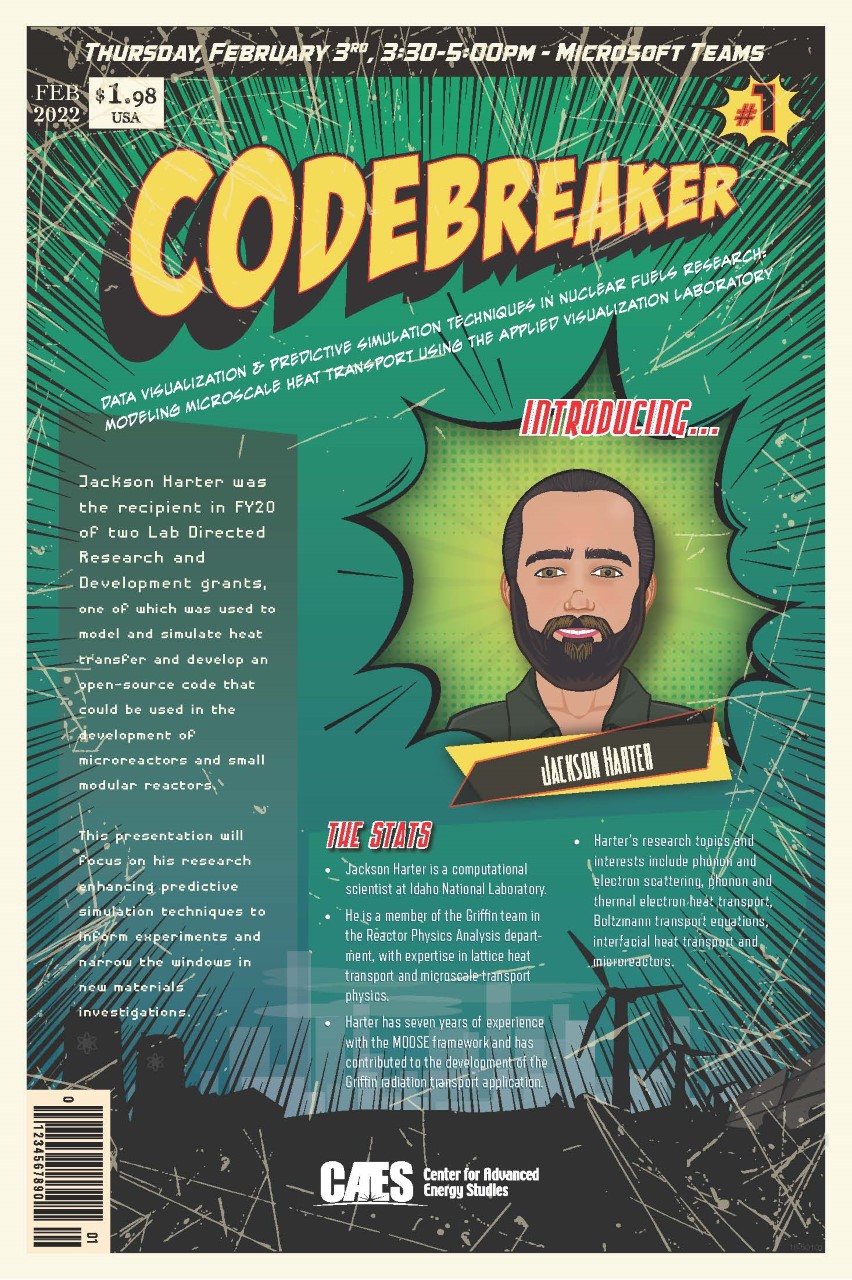INL scientist Jackson Harter will discuss his research on advanced materials and how he used the Applied Visualization Laboratory at CAES to further it at the CAES Codebreaker webinar on Feb. 3 at 3:30 pm. Harter was the recent recipient of two INL Lab Directed Research and Development grants, one of which was used to model and simulate heat transfer and develop an open-source code that could be used in the development of microreactors and small modular reactors. His Codebreaker presentation will focus on his research enhancing predictive simulation techniques to inform experiments and narrow the windows in new materials investigations. Harter will also discuss linkages between his research and CAES' Applied Visualization Laboratory, and how the lab can be leveraged to advance or complement research.
Harter is a computational scientist in the Reactor Physics Analysis department at INL, with expertise in lattice heat transport and microscale transport physics. He has seven years of experience with the MOOSE framework and has contributed to the development of the Griffin radiation transport application.
His research topics and interests include phonon and electron scattering, phonon and thermal electron heat transport, Boltzmann transport equations, interfacial heat transport and microreactors.
The CAES Codebreaker webinar takes place on the first Thursday of the month at 3:30 pm. It provides a forum for students and researchers to address their work, communicate opportunities and challenges to a receptive audience, and increase dialogue among CAES affiliates.
Click here to join the meeting
Phone number (audio only): 208-901-7635
Conference ID: 188 845 619#



